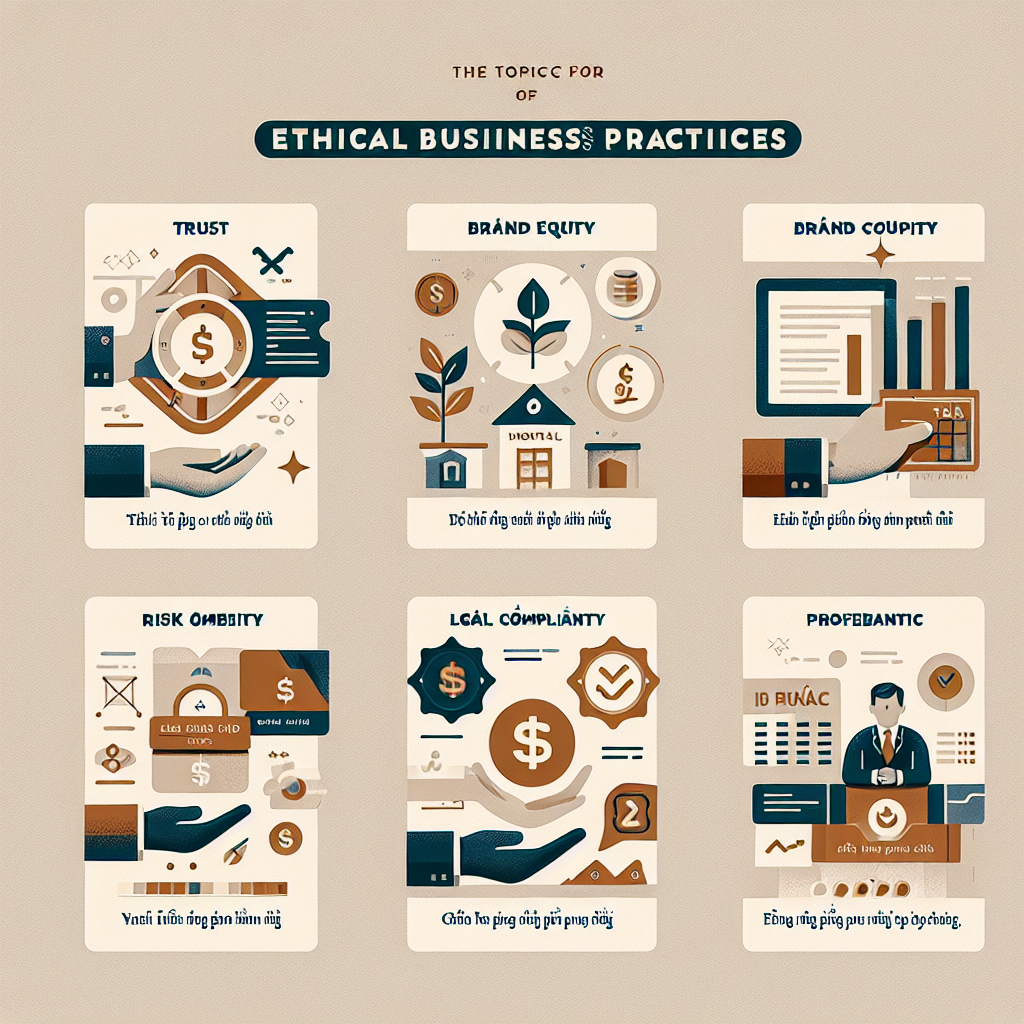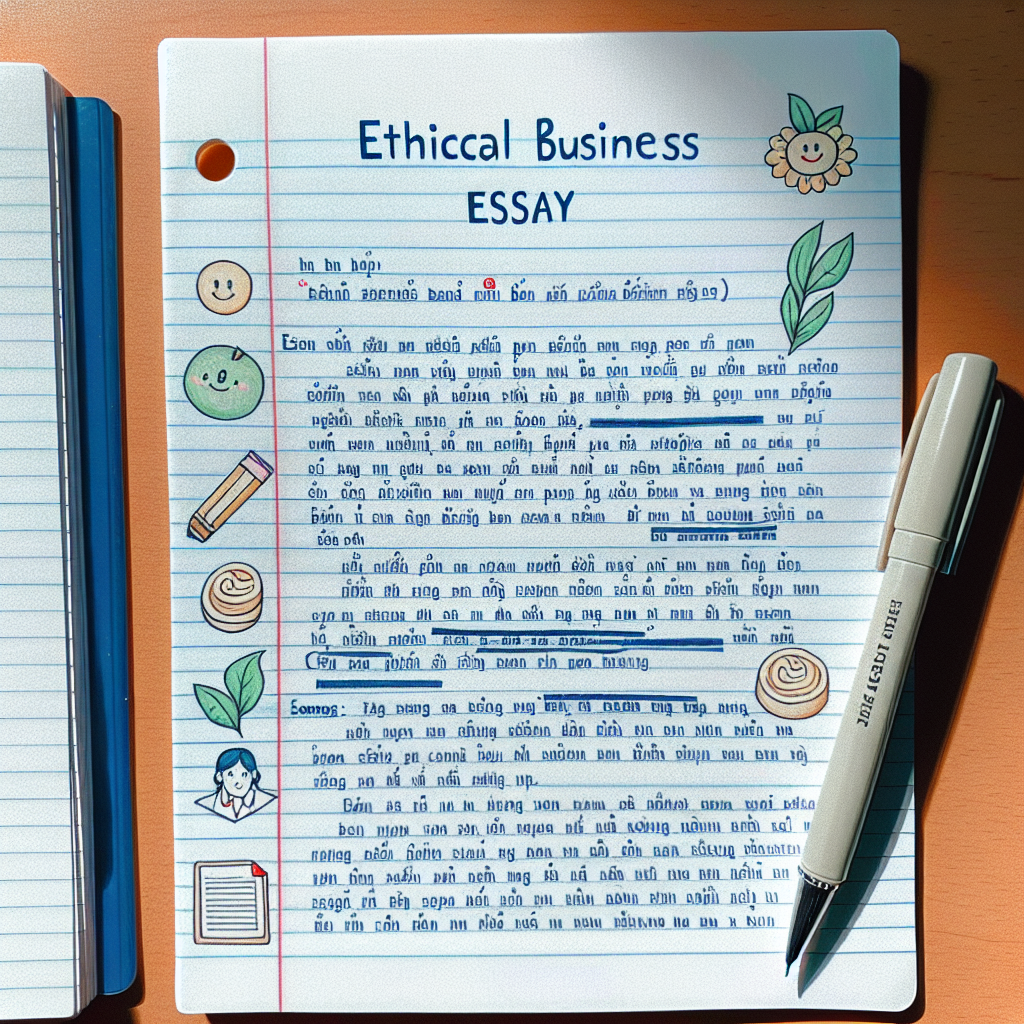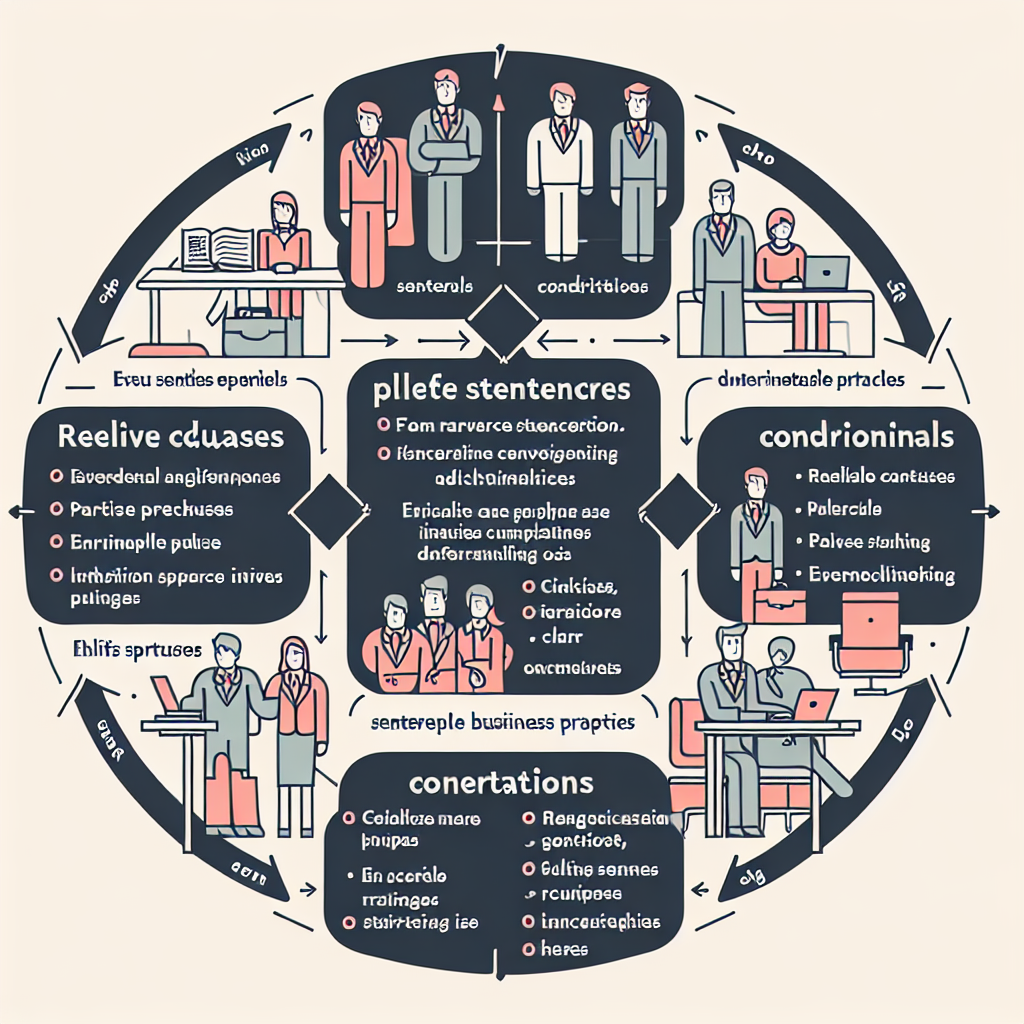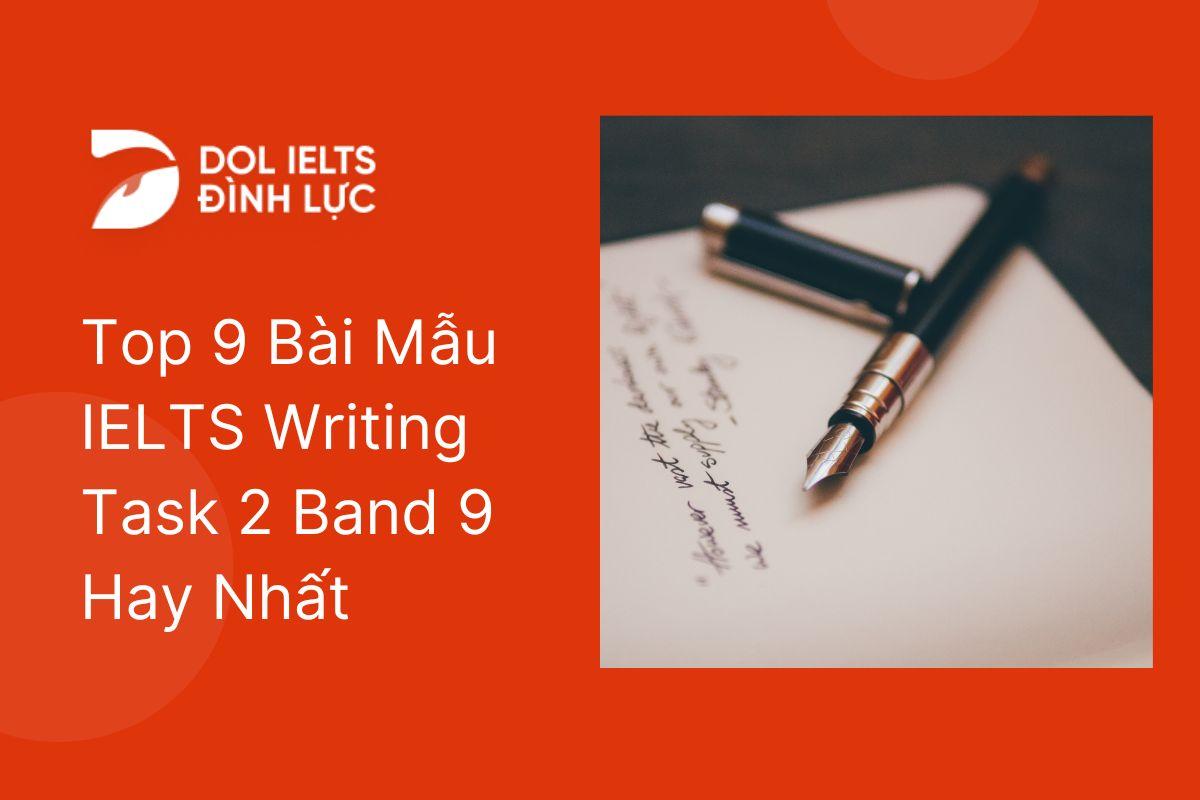Mở bài
Trong những năm gần đây, chủ đề The Importance Of Ethical Business Practices (tầm quan trọng của thực hành kinh doanh đạo đức) xuất hiện thường xuyên trong IELTS Writing Task 2 vì nó gắn liền với trách nhiệm xã hội của doanh nghiệp, môi trường, niềm tin của người tiêu dùng và quản trị công ty. Đây là nhóm chủ đề “xương sống” của đề thi hiện đại: vừa thời sự, vừa có tính học thuật cao, rất phù hợp để đánh giá khả năng lập luận, ví dụ, và dùng từ học thuật của thí sinh.
Trong bài viết này, bạn sẽ học:
- 3 bài mẫu hoàn chỉnh (Band 8-9, Band 6.5-7, Band 5-6) về ethical business practices
- Phân tích chấm điểm chi tiết theo 4 tiêu chí chính thức của IELTS
- Kho từ vựng chủ đề, cấu trúc câu “ăn điểm” và checklist tự sửa bài
- Chiến lược làm bài cho các dạng Agree/Disagree, Discuss both views, Advantages/Disadvantages
Một số đề thi thực tế/được xác minh từ nguồn uy tín:
- IELTS Liz: “Businesses should have social responsibilities in addition to making money. To what extent do you agree or disagree?”
- IELTS Blog/British Council dạng tương tự: “Companies should pay the full cost of cleaning up pollution caused by their activities. To what extent do you agree or disagree?”
- British Council/IDP dạng tương tự: “The primary purpose of businesses is to make a profit. Do you agree or disagree?”
[internal_link: IELTS Writing Task 2 Agree Disagree]
1. Đề Writing Part 2
Businesses should have social responsibilities in addition to making money. To what extent do you agree or disagree?
Dịch đề: Doanh nghiệp nên có các trách nhiệm xã hội bên cạnh việc kiếm tiền. Bạn đồng ý hay không đồng ý ở mức độ nào?
Phân tích đề bài:
- Dạng câu hỏi: Opinion (Agree/Disagree). Bạn cần nêu rõ quan điểm và mức độ đồng ý (hoàn toàn/một phần), sau đó phát triển 2-3 luận điểm chính.
- Thuật ngữ quan trọng:
- Social responsibilities: trách nhiệm xã hội (CSR, môi trường, nhân sự, cộng đồng).
- In addition to: bên cạnh, tức không phủ nhận lợi nhuận nhưng yêu cầu bổ sung trách nhiệm.
- Lỗi thường gặp:
- Lệch trọng tâm: chỉ nói về từ thiện thay vì thực hành đạo đức xuyên suốt chuỗi giá trị (lao động, chuỗi cung ứng, môi trường).
- Ví dụ mơ hồ/thiếu logic; dùng số liệu bịa đặt.
- Dùng từ chung chung “good/bad” thay vì từ học thuật như transparency, accountability, stakeholder.
- Cách tiếp cận chiến lược:
- Chọn lập trường rõ: đồng ý phần lớn (profit + ethics không loại trừ nhau).
- Dàn ý gợi ý:
- Body 1: Lợi ích dài hạn của ethical business practices (niềm tin, thương hiệu, rủi ro pháp lý).
- Body 2: Tính khả thi và cơ chế (quy định, sức ép thị trường, công nghệ minh bạch).
- Phản biện ngắn: Chi phí trước mắt và cách vượt qua.
 Infographic về the importance of ethical business practices và các lợi ích dài hạn trong IELTS Writing Task 2
Infographic về the importance of ethical business practices và các lợi ích dài hạn trong IELTS Writing Task 2
2. Bài mẫu Band 8-9
Giới thiệu: Bài Band 8-9 thể hiện lập trường rõ, lập luận logic, dẫn chứng cân bằng, từ vựng nâng cao chính xác và kiểm soát ngữ pháp tốt, liên kết mạch lạc.
Bài luận (291 từ):
In today’s volatile markets, it is no longer sufficient for companies to focus solely on profit; the importance of ethical business practices has become a determinant of long-term viability. I largely agree that firms should shoulder social responsibilities alongside making money, because ethics and earnings are not mutually exclusive but mutually reinforcing.
First, ethical conduct strengthens stakeholder trust, which compounds into brand equity and stable revenues. Transparent supply chains, fair wages, and credible emissions reporting not only reduce regulatory risks but also attract discerning consumers and institutional investors. For example, companies that adopt rigorous due diligence frameworks are less likely to face costly recalls or reputational crises, thereby protecting their bottom line. In this sense, responsibility functions as risk management, which is indispensable in globalised, highly scrutinised industries.
Second, embedding responsibility into strategy catalyses innovation. Pressures to minimise waste, cut carbon, or improve worker safety often spur process optimisation and product redesign, generating efficiencies that outlast any initial compliance costs. When governance aligns executive incentives with sustainability metrics, firms can unlock new markets—from green finance to circular-economy services—while differentiating themselves from competitors accused of greenwashing.
Admittedly, small enterprises may find ethical transitions expensive in the short term. However, this challenge is surmountable through phased targets, government guidance, and industry-wide standards that level the playing field. Public procurement preferences and tax credits can further offset costs, ensuring that responsibility does not punish early movers.
In conclusion, the importance of ethical business practices lies not in philanthropy at the margins but in core value creation. Companies that internalise social and environmental externalities enhance resilience, secure stakeholder loyalty, and position themselves for sustainable growth. Far from being a burden, responsibility is now a strategic imperative.
Phân tích Band điểm
| Tiêu chí | Band | Nhận xét |
|---|---|---|
| Task Response (Hoàn thành yêu cầu) | 8.5 | Trả lời trực tiếp đề, lập trường “largely agree” rõ ràng, phát triển 2 luận điểm sâu và có phản biện. Ví dụ minh họa cụ thể, không lan man, kết luận nhất quán với thân bài. |
| Coherence & Cohesion (Mạch lạc & Liên kết) | 8.5 | Mỗi đoạn có câu chủ đề rõ, liên kết logic bằng từ nối ý nghĩa. Sử dụng tham chiếu và lặp từ khóa có kiểm soát; progression mượt mà từ lợi ích đến phản biện. |
| Lexical Resource (Từ vựng) | 8.5 | Từ vựng học thuật chính xác: stakeholder trust, due diligence, greenwashing, circular economy. Collocations tự nhiên; gần như không lỗi lựa chọn từ. |
| Grammatical Range & Accuracy (Ngữ pháp) | 8.0 | Đa dạng cấu trúc: mệnh đề quan hệ, đảo ngữ nhẹ, cụm phân từ. Lỗi ngữ pháp không đáng kể; chấm câu chính xác, kiểm soát tốt độ dài câu. |
Các yếu tố giúp bài này được chấm điểm cao
- Nêu quan điểm nhất quán ngay mở bài và củng cố ở kết luận.
- Tổ chức luận điểm theo logic “niềm tin – rủi ro – đổi mới – chính sách hỗ trợ”.
- Dùng thuật ngữ chuẩn học thuật, tránh sáo rỗng (không chỉ “help society”).
- Có phản biện cân bằng, không tuyệt đối hóa vấn đề.
- Ví dụ mang tính cơ chế (due diligence, procurement, tax credits), không bịa số liệu.
- Câu chủ đề in đậm ý khái quát, giúp giám khảo nắm mạch lập luận nhanh.
3. Bài mẫu Band 6.5-7
Giới thiệu: Bài Band 6.5-7 có lập trường rõ, phát triển ý tương đối tốt, dùng từ học thuật cơ bản và ít lỗi. Mạch lạc nhưng chưa thật sâu sắc ở phân tích hoặc phạm vi từ vựng.
Bài luận (263 từ):
Many people believe that companies should do more than generate profits, and I mostly agree with this perspective. In modern economies, ethical business practices are becoming a normal expectation from customers, employees, and governments.
To begin with, being responsible improves a company’s image and builds long-term trust. If a firm pays fair wages, treats suppliers honestly, and reports its environmental impact transparently, people are more likely to buy from it and recommend it to others. This trust can protect the company when difficulties happen, such as accidents or market downturns, because the public gives it the benefit of the doubt. In addition, responsible companies face fewer legal problems and fines, which indirectly supports profits.
Furthermore, responsibility can drive efficiency. When businesses try to save energy and reduce waste, they often discover better ways to organise their operations. For example, using recyclable materials or optimising delivery routes can lower costs while decreasing pollution. Although some measures are expensive at the beginning, the savings and goodwill can compensate later.
It is true that small businesses may struggle due to limited budgets and knowledge. However, governments and industry associations can offer guidelines and incentives to make ethical practices more achievable, such as tax reductions or training programmes.
In conclusion, I believe that companies should combine profit-making with social responsibilities. This approach not only benefits society but also creates stable growth for the business itself.
Phân tích Band điểm
| Tiêu chí | Band | Nhận xét |
|---|---|---|
| Task Response (Hoàn thành yêu cầu) | 7.0 | Trả lời đúng yêu cầu, có luận điểm và ví dụ cơ bản. Phân tích chưa quá sâu, thiếu các thuật ngữ chuyên sâu hoặc cơ chế cụ thể. |
| Coherence & Cohesion (Mạch lạc & Liên kết) | 7.0 | Bố cục rõ ràng, câu chủ đề tương đối tốt, từ nối đa dạng vừa đủ. Một vài đoạn có thể mở rộng thêm quan hệ nhân-quả. |
| Lexical Resource (Từ vựng) | 6.5 | Từ vựng phù hợp chủ đề (fair wages, legal problems); collocations chưa thật đa dạng; một số diễn đạt còn chung chung. |
| Grammatical Range & Accuracy (Ngữ pháp) | 7.0 | Câu đơn/câu ghép chính xác, có vài cấu trúc phức. Lỗi nhỏ về dấu câu hoặc mạo từ có thể xuất hiện nhưng không gây hiểu nhầm. |
So sánh với bài Band 8-9
- Từ vựng: Bài 8-9 dùng thuật ngữ sâu (due diligence, green finance), bài 6.5-7 dùng từ chung hơn (image, legal problems).
- Lập luận: Bài 8-9 phân tích cơ chế (incentive alignment, procurement), bài 6.5-7 dừng ở mức lợi ích – chi phí cơ bản.
- Ngữ pháp: Bài 8-9 đa dạng cấu trúc cao cấp; bài 6.5-7 ít đảo ngữ, ít cụm phân từ.
 Minh họa bài mẫu IELTS Writing Task 2 Band 7 về ethical business practices
Minh họa bài mẫu IELTS Writing Task 2 Band 7 về ethical business practices
4. Bài mẫu Band 5-6
Giới thiệu: Bài Band 5-6 thường có ý rõ nhưng phát triển hạn chế, từ vựng lặp, lỗi ngữ pháp/mạo từ/giới từ, ví dụ mơ hồ.
Bài luận (258 từ) – có đánh dấu lỗi:
Some people argue that business only need to make money, but I disagree because they should be ethical. Firstly, when a company is honest and responsible, customers will trust it more. This can make more profit in the future. However, some companies just do charity once and think it is enough, which is a kind of advertising only. They should improve their whole system, like workers and environment, not only do donation.
Secondly, if firms pay attention to environment, they will reduce pollution and also save cost. For example, using less electricity is good for nature and budget. Also, employees feel happier when company care about them, so productivity goes up. On the other hand, there have many small businesses who cannot afford to be ethical because it is expensive at the beginning.
In addition, government must make rules to force the company to be responsible. If they break rules, they should pay big fines. This will help society to be more fair. In my opinion, ethical business is important because it builds reputation for company and increase long-term success. Even if they need to spend money now, they will get benefit later.
In conclusion, companies should not only care about profit but also take responsibilities for workers, environment and community. This is better for everyone and make business stronger in the future.
Phân tích Band điểm
| Tiêu chí | Band | Nhận xét |
|---|---|---|
| Task Response (Hoàn thành yêu cầu) | 6.0 | Nêu quan điểm rõ nhưng phát triển ý cơ bản, ví dụ chung chung, thiếu chiều sâu và dẫn chứng cụ thể. |
| Coherence & Cohesion (Mạch lạc & Liên kết) | 6.0 | Có bố cục mở-thân-kết; liên kết còn lỏng, lặp ý; câu chuyển đoạn còn đơn giản. |
| Lexical Resource (Từ vựng) | 5.5 | Từ vựng lặp (company, responsible), collocations chưa tự nhiên; vài từ dùng chưa chuẩn (advertising only). |
| Grammatical Range & Accuracy (Ngữ pháp) | 5.5 | Nhiều lỗi mạo từ, chia động từ, chủ-vị; cấu trúc câu chủ yếu đơn/ghép, thiếu đa dạng. |
Những lỗi sai của bài – phân tích & giải thích
| Lỗi sai | Loại lỗi | Sửa lại | Giải thích |
|---|---|---|---|
| business only need to make money | Chia động từ | businesses only need | Chủ ngữ số nhiều “businesses” + need (không chia), hoặc “business” số ít + needs. |
| a kind of advertising only | Collocation/Trật tự | only a kind of advertising / merely advertising | Vị trí “only” trước cụm danh từ; “merely advertising” tự nhiên hơn. |
| not only do donation | Cấu trúc | not only make donations | “Do donation” sai collocation; đúng: make a donation/do charity. |
| there have many small businesses | Cấu trúc tồn tại | there are many small businesses | Mẫu “there are/there is” cho câu tồn tại. |
| government must make rules | Mạo từ | the government must make rules | “The government” khi nói chung về chính quyền một quốc gia. |
| force the company to be responsible | Mạo từ/khái quát | force companies to be responsible | Khi nói chung về doanh nghiệp, dùng số nhiều không mạo từ. |
| increase long-term success | Chia động từ | increases long-term success | Chủ ngữ “ethical business” số ít, động từ thêm “-s”. |
| make business stronger | Mạo từ/đếm được | make businesses stronger / make a business stronger | “Business” đếm được khi nói doanh nghiệp cụ thể; ở đây nên số nhiều. |
Cách Cải Thiện Từ Band 6 Lên Band 7
- Bổ sung ví dụ cụ thể theo cơ chế: minh bạch chuỗi cung ứng, chuẩn báo cáo phát thải, chính sách nhân sự.
- Nâng cấp collocations: build stakeholder trust, reduce compliance risks, align incentives.
- Đa dạng cấu trúc câu: mệnh đề quan hệ, cụm phân từ, đảo ngữ nhẹ.
- Sửa triệt để lỗi mạo từ (a/an/the), chủ-vị, thì hiện tại đơn/hiện tại hoàn thành.
- Tối ưu liên kết: dùng therefore, consequently, by contrast, in doing so để chỉ nguyên nhân-kết quả rõ ràng.
5. Từ vựng quan trọng cần nhớ
| Từ/Cụm từ | Loại từ | Phiên âm | Nghĩa tiếng Việt | Ví dụ (tiếng Anh) | Collocations |
|---|---|---|---|---|---|
| ethical business practices | n. phr. | /ˈɛθɪkəl/ | thực hành kinh doanh đạo đức | Ethical business practices build consumer trust. | adopt/implement/commit to ethical business practices |
| corporate social responsibility (CSR) | n. | /ˈkɔːpərət ˈsəʊʃl rɪˌspɒnsəˈbɪləti/ | trách nhiệm xã hội DN | CSR can mitigate reputational risk. | embrace/strengthen/measure CSR |
| stakeholder | n. | /ˈsteɪkˌhəʊldə/ | bên liên quan | Firms must listen to stakeholders. | engage with/align stakeholder interests |
| transparency | n. | /trænsˈpærənsi/ | minh bạch | Transparency fosters accountability. | ensure/increase/financial transparency |
| accountability | n. | /əˌkaʊntəˈbɪləti/ | trách nhiệm giải trình | Strong accountability deters fraud. | promote/enforce/accountability frameworks |
| due diligence | n. | /ˌdjuː ˈdɪlɪdʒəns/ | thẩm định/soát xét | Supply-chain due diligence is essential. | conduct/strengthen/due diligence |
| greenwashing | n. | /ˈɡriːnwɒʃɪŋ/ | tô xanh sai sự thật | Consumers are wary of greenwashing. | accusations of/avoid/combat greenwashing |
| bottom line | n. | /ˌbɒtəm ˈlaɪn/ | lợi nhuận ròng | Ethics can protect the bottom line. | improve/protect/undermine the bottom line |
| reputational risk | n. | /ˌrɛpjʊˈteɪʃənl rɪsk/ | rủi ro danh tiếng | Misconduct creates reputational risks. | face/mitigate/reputational risk |
| regulatory compliance | n. | /ˌrɛɡjʊˈleɪtəri kəmˈplaɪəns/ | tuân thủ quy định | Compliance reduces fines. | ensure/monitor/achieve regulatory compliance |
| code of conduct | n. | /kəʊd əv ˈkɒndʌkt/ | bộ quy tắc ứng xử | A code of conduct guides employees. | adopt/enforce/review a code of conduct |
| whistleblowing | n. | /ˈwɪsəlˌbləʊɪŋ/ | tố giác nội bộ | Protect whistleblowing channels. | encourage/protect/whistleblowing policy |
| long-term viability | n. | /ˌlɒŋ tɜːm ˌvaɪəˈbɪləti/ | khả năng duy trì dài hạn | Ethics ensure long-term viability. | ensure/threaten/assess long-term viability |
| consumer trust | n. | /kənˈsjuːmə trʌst/ | niềm tin người tiêu dùng | Transparency builds consumer trust. | build/erode/restore consumer trust |
| philanthropic initiatives | n. | /ˌfɪlənˈθrɒpɪk ɪˈnɪʃətɪvz/ | sáng kiến từ thiện | Philanthropic initiatives alone are insufficient. | launch/support/evaluate philanthropic initiatives |
6. Cấu trúc câu dễ ăn điểm cao
- Câu phức với mệnh đề phụ thuộc
- Công thức: Mệnh đề chính + when/if/although/because + mệnh đề phụ thuộc.
- Ví dụ từ bài Band 8-9: “When governance aligns executive incentives with sustainability metrics, firms can unlock new markets.”
- Vì sao ghi điểm: Thể hiện quan hệ điều kiện – kết quả rõ ràng, mạch lập luận chặt.
- Ví dụ bổ sung:
- When firms disclose emissions accurately, investors respond positively.
- Although initial costs are high, long-term savings are substantial.
- Lỗi thường gặp: Quên dấu phẩy khi mệnh đề phụ đứng trước; dùng thì không nhất quán.
- Mệnh đề quan hệ không xác định (non-defining relative clause)
- Công thức: Danh từ, which/who + mệnh đề bổ sung, …
- Ví dụ: “Transparent supply chains, which reduce regulatory risks, also attract investors.”
- Ghi điểm: Bổ sung thông tin gọn, tăng mật độ ý học thuật.
- Ví dụ bổ sung:
- Responsible sourcing, which reassures consumers, is now expected.
- Executives, who set the tone, must model integrity.
- Lỗi thường gặp: Thiếu dấu phẩy; dùng that thay cho which trong mệnh đề không xác định.
- Cụm phân từ (participle phrases)
- Công thức: V-ing/V-ed + cụm bổ nghĩa, đặt đầu/giữa/cuối câu.
- Ví dụ: “Pressures to minimise waste, spurring process optimisation and product redesign, generate efficiencies.”
- Ghi điểm: Nén ý, tạo nhịp văn tự nhiên, học thuật.
- Ví dụ bổ sung:
- Adopting rigorous standards, companies reduce risk.
- Built on trust, brands weather crises better.
- Lỗi thường gặp: Treo chủ ngữ (dangling participle).
- Câu chẻ (Cleft sentences)
- Công thức: It is/was + thành phần nhấn mạnh + that/who + mệnh đề.
- Ví dụ: “It is responsibility that functions as risk management.”
- Ghi điểm: Nhấn mạnh thông tin trọng tâm, tăng sức thuyết phục.
- Ví dụ bổ sung:
- It is transparency that drives consumer trust.
- It is governance that aligns incentives.
- Lỗi thường gặp: Dùng sai thì; lặp it is quá nhiều gây nặng nề.
- Câu điều kiện nâng cao (mixed/Type 3 nuance)
- Công thức: If + past perfect, S + would + V (hiện tại/hoàn thành) để diễn đạt giả định ảnh hưởng hiện tại.
- Ví dụ: “If firms had embedded ethics earlier, they would now be more resilient.”
- Ghi điểm: Biểu đạt quan hệ thời gian phức tạp.
- Ví dụ bổ sung:
- If regulators had enforced standards, markets would be safer today.
- If companies had avoided greenwashing, they would have retained trust.
- Lỗi thường gặp: Nhầm lẫn thì; dùng would trong mệnh đề if.
- Đảo ngữ nhấn mạnh
- Công thức: Only by/Not until/Never + trợ động từ + S + V.
- Ví dụ: “Only by internalising externalities can companies secure sustainable growth.”
- Ghi điểm: Tạo nhấn mạnh, đa dạng cấu trúc.
- Ví dụ bổ sung:
- Never has transparency been more critical.
- Not until scandals emerge do some firms act.
- Lỗi thường gặp: Quên đảo trợ động từ; sai trật tự chủ ngữ – động từ.
 Sơ đồ 6 cấu trúc câu nâng cao áp dụng cho ethical business practices
Sơ đồ 6 cấu trúc câu nâng cao áp dụng cho ethical business practices
7. Checklist Tự Đánh Giá
- Trước khi viết:
- Xác định dạng bài (Agree/Disagree hay Discuss) và lập trường rõ ràng.
- Gạch đầu dòng 2-3 luận điểm cốt lõi liên quan ethical business practices.
- Chuẩn bị 1-2 ví dụ cơ chế (minh bạch, tuân thủ, khuyến khích chính sách).
- Trong khi viết:
- Mở bài nêu lập trường + định hướng luận điểm.
- Mỗi đoạn thân có câu chủ đề rõ; dùng từ nối nguyên nhân-kết quả.
- Kiểm tra mạo từ, chủ-vị, thì và dấu phẩy ở mệnh đề phụ/quan hệ.
- Sau khi viết:
- Soát từ vựng học thuật/collocations; thay “good/bad” bằng từ chính xác.
- Cắt bỏ lặp lại; thêm 1 câu kết nối ý nếu đoạn rời rạc.
- Kiểm tra độ dài 270-320 từ (an toàn cho Band cao).
- Mẹo quản lý thời gian:
- 3-4 phút phân tích đề + dàn ý; 28-30 phút viết; 4-5 phút soát lỗi.
- Viết câu chủ đề trước, sau đó hoàn thiện bằng bằng chứng/giải thích.
- Nếu bí ví dụ, dùng cơ chế chính sách/doanh nghiệp thay vì số liệu.
Kết bài
Chủ đề The importance of ethical business practices không chỉ “đẹp” về đạo lý mà còn là đề tài chuẩn học thuật để bạn khoe tư duy chiến lược, vốn từ vựng chất lượng và cấu trúc câu nâng cao trong IELTS Writing Task 2. Qua 3 bài mẫu đa cấp độ, bảng chấm điểm chi tiết, kho từ vựng – cấu trúc và checklist, bạn đã có lộ trình rõ ràng để cải thiện từ Band 6 lên 7, thậm chí 8+ nếu luyện tập đều đặn. Hãy viết lại đề bài hôm nay theo lập trường của bạn, đăng lên nhóm học để nhận phản hồi và so sánh với khung chấm điểm ở trên. Với cường độ 2-3 bài/tuần, hầu hết học viên có thể tăng 0.5 band sau 4-6 tuần.
Tài nguyên bổ sung: [internal_link: Từ vựng chủ đề Environment], [internal_link: Linking words nâng cao], [internal_link: Mẹo viết kết luận IELTS Task 2]. Chúc bạn luyện tập hiệu quả và sớm chinh phục band điểm mục tiêu với các bài mẫu IELTS chuẩn xác và mẹo viết IELTS thực chiến!



[…] Để hiểu bối cảnh và thuật ngữ cốt lõi, bạn có thể tham khảo thêm phân tích nền tảng về đạo đức và phát triển bền vững trong kinh doanh tại The importance of ethical business practices. […]
[…] đức trong kinh doanh liên quan đến quảng cáo, bạn có thể tham khảo thêm về tầm quan trọng của các thực hành kinh doanh đạo đức trong môi trường thương mại hiện […]
[…] tự như tầm quan trọng của thực hành kinh doanh có đạo đức, việc tố cáo sai phạm cũng đòi hỏi một hệ thống pháp lý và văn hóa tổ […]